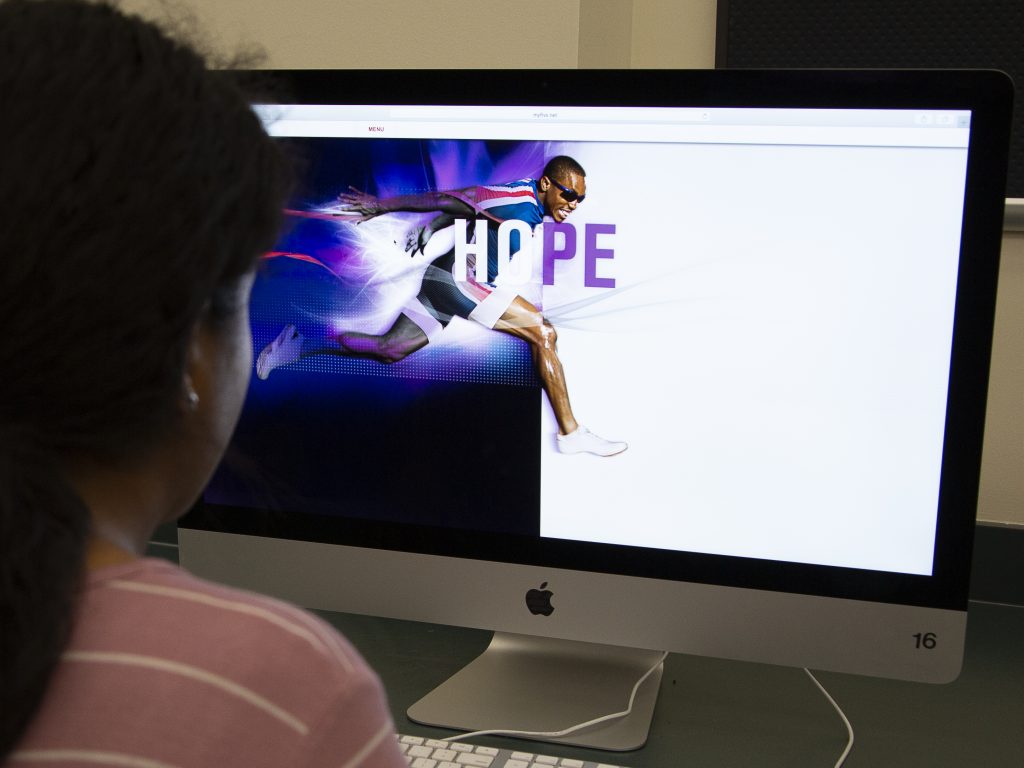Online PE gets mixed reviews from students and fitness experts
By Katya Gutierrez
Coral Gables Senior High School
Zaira Gonzalez prepared for her first high school PE class in a peculiar way. She left her sneakers and PE shorts in the closet and took out her laptop.
Instead of loosening up with jumping jacks and toe touches, she cracked her knuckles and stretched her mouse finger.
Gonzalez is one of many taking advantage of a Florida law that allows high school students to get physical education credit online. Florida Virtual School, also known as FLVS, has become a means for students to get their credits without having to take up an entire class period.

Though convenient, online PE has a number of critics who contend that a curriculum without accountability for a real workout regimen is not effective.
Although physical education is a graduation requirement for a basic high school diploma in Miami-Dade, students who go online no longer have to engage in the traditional physical activities taught in the classroom. Only 33.6% of Miami-Dade teens engage in regular physical activity, according to a 2018 Health Council of South Florida study.
For Gonzalez, it was a matter of convenience.
“I decided to take the class during the summer so that when I started my freshman year I wouldn’t have to take it.”
Eric Gaines, the instructional leader of personal fitness at FLVS, said the course is “very, very popular, especially with homeschool students and high school seniors.”
“It’s a way for them to complete their credit and leaves them more room for other courses.”
Tania Clow, communications manager of FLVS, said the course allows for customization. Students can choose a sport more suitable for them, rather than having a sport assigned to them.
When choosing classes for high school, students are usually given the option to take either online or traditional PE. Since Florida schools require students to take a physical education course and an online course to graduate, many students use FLVS to fulfill both requirements.
Noelle Sanchez, a rising senior at Coral Gables Senior High, is another student who satisfied both requirements by taking the course.
“I just wanted credit for the class and also because for school you need to pass an online course to graduate so I needed that,” said Sanchez. “It was also easier.”
Although the online course allows flexibility, there are contrasting opinions on the program’s effectiveness. After taking the online course, Gonzalez said that it is better to take physical education at school.
“There’s not a physical teacher there to watch you do the workouts so you can be like, ‘Oh i worked out 10 minutes’ when you didn’t,” Gonzalez said.
Alexis Canaves, a health fitness specialist at the UHealth Fitness and Wellness Center at the University of Miami’s Miller School of Medicine, emphasized the importance of physical fitness for teens.
Canaves explained that real exercise helps improve learning and retention in young people.
“There needs to be a physical aspect for it to really be PE,” she said.
Mariano Gutierrez, assistant general manager of the UFC Gym in Kendall, said that, along with missing out on necessary physical activity, taking PE online excludes the important team building skills formed in a traditional PE class.
“Physical education has a lot to do with the social interaction that teenagers and young people have,” Gutierrez said.
According to the Health Council of South Florida, last year 12.8% of teens in Miami-Dade were obese. A year earlier, the CDC reported that only 3 in 10 teens get the recommended 60 minutes of daily exercise and that fewer have gym class every day.
Sanchez explained that online PE gives students little incentive to meet their exercise goals. She “kind of” did her online exercises but only needed to record video of a small part of them and complete a quiz to finish her work.
Although the program periodically updates the videos used in the course, there are no major changes planned for the future of the physical education curriculum on FLVS.